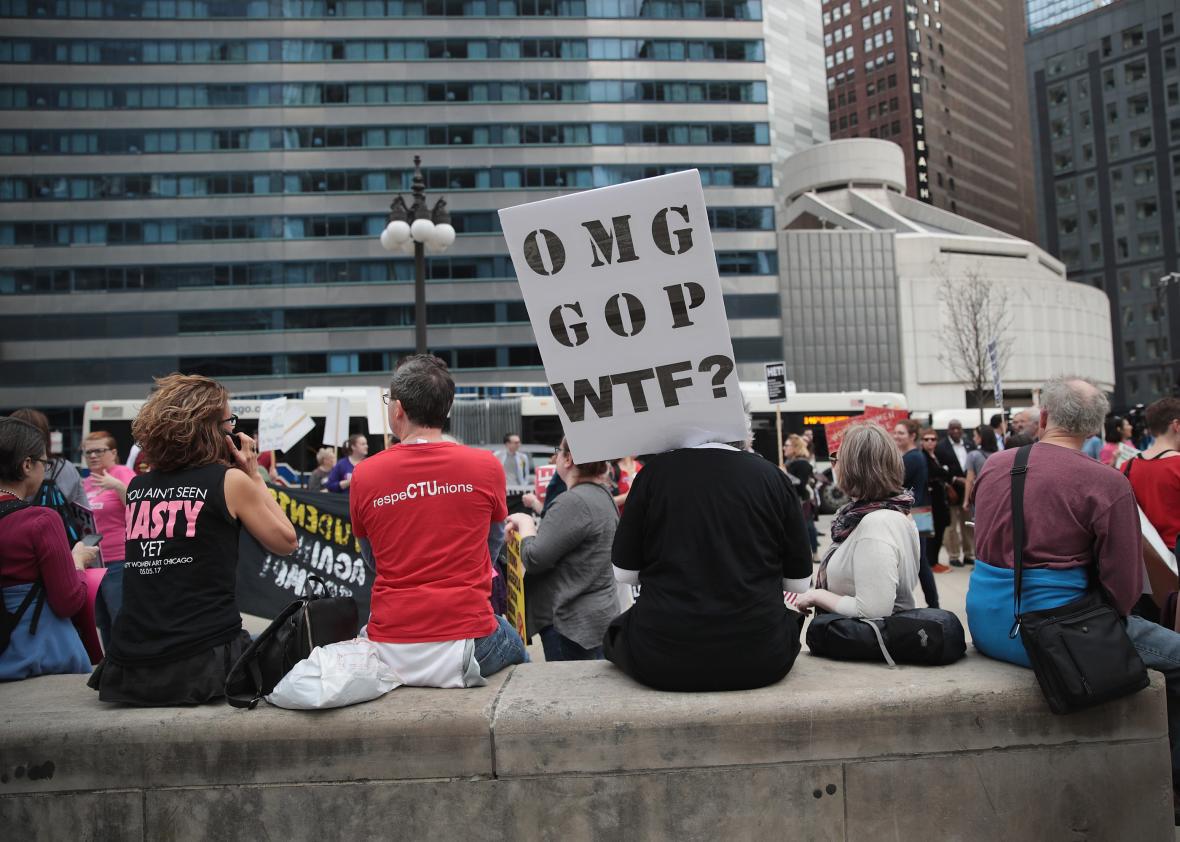Not that any Republicans in Congress will care, but the Centers for Disease Control and Prevention reported Tuesday that the uninsured rate remained at a historic low last year. Just 9 percent of Americans lacked health coverage in 2016, according to the National Health Interview Survey, down from 16 percent when Obamacare passed.
This is not entirely happy news. On the one hand, it’s a reminder of all the good the health law has done: There are 20 million fewer Americans without coverage today than before the legislation passed, and contrary to Republican talking points about Americans being forced to buy useless insurance, all signs suggest people are receiving more (and more affordable) medical care as a result. On the other, the uninsured rate basically held steady last year—it dropped a statistically insignificant one-tenth of a point from 2015—and 28.6 million Americans of all ages still lacked coverage. A full 12.4 percent of adults younger than 65 still don’t have insurance. And given that open enrollment on the exchanges fell this year, it’s possible that the uninsured rate will tick up a bit. If you told a citizen in France, Australia, or Canada that their health care system was about to transform into ours, they’d still think it was a catastrophe.
Obamacare could have reduced the uninsured population further if more states had co-operated with the law. In those that embraced its Medicaid expansion, 9.2 percent of adults younger than 65 were uninsured, compared with 17.9 percent in those that refused it. Some state governments have also subtly undermined their own coverage marketplaces in various ways—for instance, by allowing many residents to remain on old, pre-Obamacare plans, driving up the cost of new coverage.
But Obamacare was also designed in ways that would have allowed it to be easily improved. Lawmakers could have increased the subsidies for Americans to buy private insurance, or built a better, permanent reinsurance system in order to cushion losses among insurers who ended up with too many sick patients. Over time, with adjustments, Washington could have used the law’s framework to bring the uninsured rate closer and closer to zero.
That possibility is dead for now as Republicans look to repeal and replace the law with something far less generous that will likely leave millions more without coverage once again. Even now, Donald Trump’s threats about blowing up the exchanges are likely destabilizing them further. For all the desperately needed changes it has brought about, Obamacare’s story may ultimately be about a promise unfulfilled.
